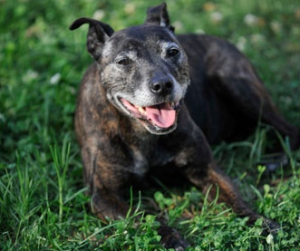
Dog:
Much like their feline friends, dogs who come from a group environment are also prone to respiratory infections with the most common being kennel cough (bordetella bronchiseptica). It’s not uncommon to bring your dog home from the shelter or rescue and have them come down with a dry, hacking cough. If properly treated with antibiotics and an anti-tussant (anti-cough) medication, kennel cough is a relatively benign illness. Because of their predisposition to eating feces and always because they’re sharing kennels with other dogs, it’s fairly common for dogs to come from the shelter with diarrhea. There are a variety of reasons the dog could have diarrhea. Most shelters feed a variety of food (as they get food based on donations) so a lot of dogs will show GI upset from the constant diet changes. They may also have diarrhea because of worms or other parasites like giardia and coccidia. Whether or not your dog comes home with diarrhea, it’s a wise idea to have a fecal sample run so your doctor can start a round of anti-parasitic medication. If you live in a hot, humid environment–particularly the southern United States–it’s a wise idea to have a heartworm test run, too, if your shelter hasn’t already. A small amount of blood will be run and a laboratory test will be conducted to see if your pet is infected. Most shelters will have run this before putting a dog up for adoption unless you adopted from a more rural, under-funded shelter.
Cat:
If your cat has any kind of ocular discharge, they may have an upper respiratory infection (URI), which is fairly common in cats who have come from a shelter environment. Usually the discharge will be yellow or green and will cake the lids of your cat’s eyes. Sometimes an ophthalmic antibiotic ointment will be prescribed to clear up any potential bacterial infections. Generally if there’s eye discharge, you’ll notice a runny nose, too. The discharge from the nose can be clear or can be a yellow or green color as well. The vet will do a thorough listening of your kitty’s lungs, making sure they’re not filled with fluid from a URI. Your cat’s ears will also be inspected carefully as cats, particularly ones that have come off of the street, are commonly carriers of ear mites. They will feel your cat’s coat and examine their skin to ensure there aren’t any dermatological infections. After you adopt, your shelter will probably give you a voucher for a free veterinarian examination. Use it! A good health inspection is crucial to making sure your new pet is healthy. There’s nothing worse than your family falling in love with a new dog or cat and finding out they have a serious health condition. Not to mention, it’s a great idea to establish a good relationship with your veterinarian as you dive into the world of pet ownership.
Informational credit to Central Animal Emergency Clinic, a Vancouver animal hospital.
